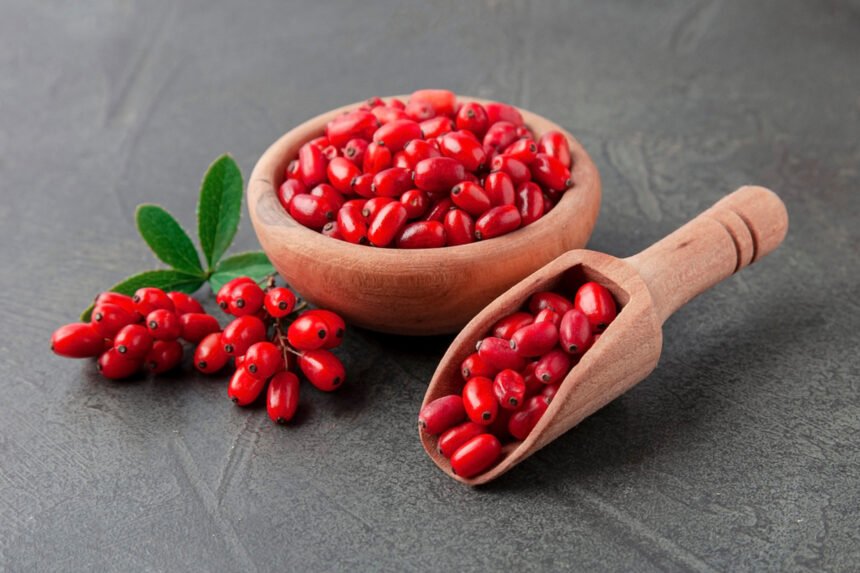Balancing blood sugar and keeping your metabolism healthy isn’t always simple. Busy schedules, quick meals, and long hours sitting at a desk can make it hard to maintain steady energy and a healthy weight. That’s one reason many people are turning to natural supplements for support. Among the most popular is berberine, a golden-yellow plant compound with an impressive history and growing scientific interest.
This guide explores what berberine is, how it works, and the many ways it can support blood sugar control and metabolism. You’ll also learn how to use it safely, how to combine it with healthy habits, and what to keep in mind before getting started.
What Is Berberine?
Berberine is an alkaloid found in plants like barberry, Oregon grape, goldenseal, and tree turmeric. For centuries, traditional healers in China, India, and the Middle East have used these plants to soothe digestion, fight infections, and calm inflammation.
Modern research has shown that berberine offers even more benefits than early herbalists imagined. Today, it’s well known for helping manage blood sugar, supporting a healthy metabolism, and improving gut balance. Scientists often describe berberine as a “multi-target” compound because it influences several systems in the body at once.

How Berberine Helps Control Blood Sugar
Improving Insulin Sensitivity
Insulin is the hormone that moves glucose from the bloodstream into your cells, where it becomes energy. When cells don’t respond properly to insulin, blood sugar rises, increasing the risk of type 2 diabetes.
Studies show that berberine can help cells respond better to insulin, allowing glucose to enter more easily. This can lower fasting blood sugar levels and improve overall glucose control. Some research even compares berberine’s effects to those of metformin, though it should always be viewed as a complement to, not a replacement for, professional care.
For example, people with prediabetes who combined dietary changes with berberine under medical supervision often reported better fasting glucose levels and improvements in HbA1c, a marker of long-term sugar control.
Slowing the Breakdown of Carbohydrates
Berberine may also reduce how quickly your body turns carbohydrates into glucose. It slows down enzymes in the gut that break complex carbs into simple sugars. As a result, glucose enters the bloodstream more gradually, which helps prevent sharp spikes after meals.
Think of berberine as a gentle speed bump that gives your body more time to process sugar efficiently.
Activating AMPK, the Metabolic Master Switch
Another important way berberine supports blood sugar is by activating an enzyme called AMP-activated protein kinase (AMPK). This enzyme plays a key role in how the body balances energy. When AMPK is active, your cells become more efficient at taking up glucose and using it for fuel, which helps maintain steady blood sugar throughout the day.
Berberine and Metabolism
A healthy metabolism does more than burn calories. It drives the processes that turn food into energy and keeps every part of the body functioning properly. Berberine contributes to metabolic health in several meaningful ways.
Supporting Fat Metabolism and Weight Management
By stimulating AMPK, berberine helps the body use fat more effectively for fuel. Research suggests it can reduce fat accumulation in the liver and improve how muscles burn fatty acids. When paired with a balanced diet and regular exercise, berberine may also help with weight management.
One study found that people who took berberine while following a calorie-conscious diet lost more body weight and abdominal fat than those who only changed their eating habits.
Promoting Healthy Cholesterol and Triglyceride Levels
Blood sugar and cholesterol problems often go hand in hand. High LDL cholesterol and triglycerides, combined with low HDL cholesterol, increase the risk of heart disease. Berberine has been shown to help lower LDL and triglycerides while gently raising HDL, giving both metabolism and heart health a boost.
Enhancing Gut Microbiome Health
The gut microbiome is home to trillions of beneficial bacteria that influence digestion, immunity, and metabolism. Research indicates that berberine can shift the balance of gut bacteria in a positive way, encouraging species linked to better glucose control and reducing those associated with inflammation.
Taking Berberine Safely
Berberine works best when used thoughtfully and consistently.
Dosage and Timing
Most studies recommend between 500 mg and 1,500 mg per day, divided into two or three doses. Because berberine leaves the bloodstream fairly quickly, splitting the dose helps keep levels steady. Taking it with meals may also reduce stomach discomfort and improve its effect on post-meal blood sugar.
Combining with Other Nutrients
Some supplements combine berberine with ingredients such as milk thistle, cinnamon, or chromium. These blends may offer extra support for liver health, insulin sensitivity, or antioxidant protection. Always look for high-quality products with clear labeling, and talk to a healthcare professional before trying new combinations.
Who Should Avoid It
Berberine isn’t recommended for pregnant or breastfeeding women or for young children unless a doctor advises it. Because it can interact with certain medications, including those for blood sugar, blood pressure, and blood clotting, it’s best to get medical advice before starting.
Possible Side Effects and How to Reduce Them
Most people tolerate berberine well, but mild side effects can occur, especially with higher doses. Common reactions include constipation, bloating, or mild stomach cramps. These issues usually improve as your body adjusts or when you start with a smaller amount and increase gradually.
Choosing supplements from trusted brands is also important. Poor-quality products may contain less berberine than claimed or include unwanted additives.
Pairing Berberine with Healthy Habits
Berberine can be a helpful tool, but it works best alongside supportive lifestyle choices.
Eat a Balanced Diet
Base your meals on whole foods: vegetables, fruits, whole grains, lean proteins, and healthy fats. Limiting sugary snacks and refined carbs can make it easier for your body to keep blood sugar steady.
Move Your Body
Regular physical activity improves insulin sensitivity and supports metabolism. Even simple routines like brisk walking, light jogging, yoga, or resistance training can make a real difference when done consistently.
Manage Stress
Ongoing stress raises cortisol, a hormone that can disrupt blood sugar and appetite. Activities such as deep breathing, meditation, and time outdoors help calm the mind and protect your metabolic balance.
Get Enough Rest
Good-quality sleep helps regulate appetite and keeps blood sugar steady. Aim for seven to nine hours of uninterrupted sleep each night so your body has time to recover and recharge.
Frequently Asked Questions
Can I take berberine long term?
Studies suggest berberine is safe for long-term use at recommended doses, though regular check-ins with your doctor are a good idea.
Does berberine replace diabetes medication?
No. Berberine can complement medical treatment, but it shouldn’t replace prescribed medication unless advised by your healthcare provider.
How soon will I notice results?
Some people see improvements in fasting blood sugar or energy within a few weeks, while others may need several months of consistent use to experience the full benefits.
Conclusion
Berberine is more than a passing health trend. It’s a plant compound with a long history of traditional use and a growing body of scientific research supporting its ability to improve insulin sensitivity, regulate blood sugar, and encourage a healthier metabolism.
When combined with nourishing meals, regular exercise, stress management, and good sleep, berberine can be a valuable part of your wellness routine. As always, check with a healthcare professional before starting any new supplement, especially if you take other medications or have an existing condition.
With the right guidance, berberine may be just the extra support you need to maintain steady energy, manage weight, and keep your metabolism running smoothly.


